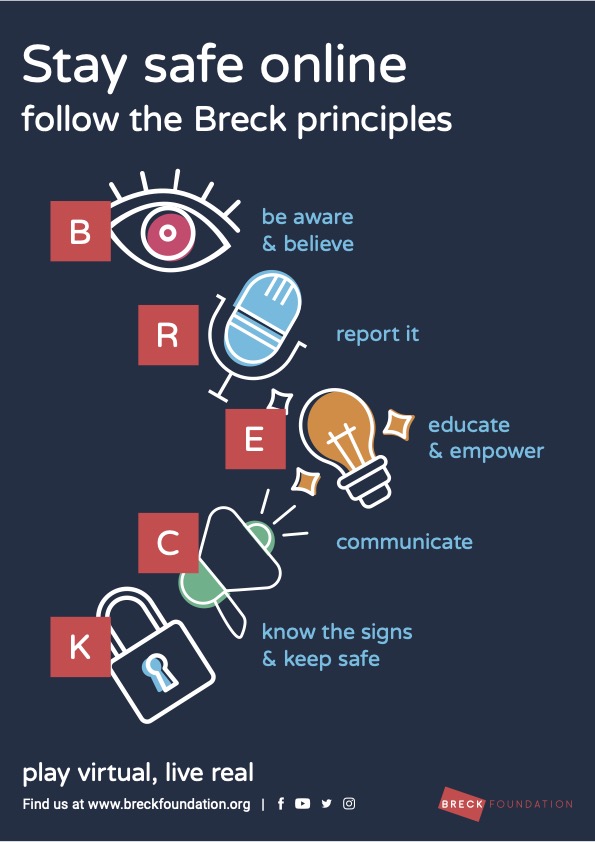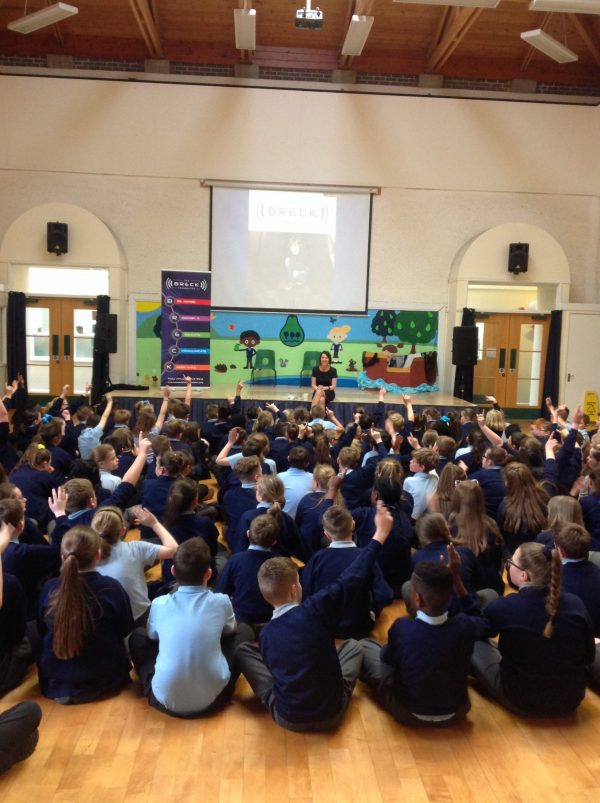Ensuring children are able to use the technology they have safely is more important than ever but it is really difficult to keep up with all the different settings and options available to us.
This page has some of our top tips to help keep on top of things and links to resources that will help.
If English is not your first language, you can find advice in other languages here.
Childnet – Supporting Young People Online

We work closely with the Breck Foundation and their founder, Lorin Lafave.
Her presentations and workshops are at the core of their work in educating young people, teachers, carers and parents about how to stay safe in the online world. The workshops are adapted to meet the needs of all ages from Reception upwards.
The Breck Foundation use age-appropriate material and images to bring the important message of “Play Virtual, Live Real” into our school. They give young people the opportunity to discuss the issues and ask questions.

Please find the link below, if you wish to find free resources for children on the website.
https://www.breckfoundation.org/young-people-the-issues

1. Set up parental controls
Most apps and devices (including gaming consoles, tablets and computers) have parental controls where you can restrict the usage of the device and block most inappropriate content from displaying. Learn how to use these and set them up for each device your child has access to. You get a step-by-step guide for how to set up parental controls for most devices at this link.
Internet Matters – How to set up parental controls on all your devices.
2. Discuss their use of technology
The best thing to help keep your child safe online is knowing about what they’re doing. Talking openly about behaviour and risk means that they know they can come to you if something goes wrong. There’s a great article about this here. It might be tempting to install a monitoring app but this could have an impact on your relationship with them, and lead them to taking increased risk to avoid the monitoring.
3. Set a Realistic Screen Time Limit
Agree a time limit or number of games beforehand, to avoid repeated disagreements around how long they can spend online. It’s also important to practise what you preach with this, and set an example by how you yourself limit your own screen time. It’s a good idea to avoid the blue light emitted from LCD screens for a period before bed, which has a positive influence on sleep quality and how easy you will find it to sleep.
4. Make an Informed Choice about Games and Social Media
Games are a wonderful way to explore stories and socialise and no matter what device you choose to use, there’s something for everyone to enjoy. Think about whether your child is mature enough to join an online community and whether the games they’re playing are appropriate. There are lots of resources online where you can find out information about the content of games, such as:
Social Media such as TikTok, YouTube, Facebook, Snapchat, Netflix and Instagram are massively popular but also bring along with them massive risks. Make sure you are aware of what your child is posting online and who they are sharing it with. There are checklists to guide you through profile settings available here. Be aware though, the best settings in the world will not protect your child 100% and it is crucial that they are open with you about their internet usage and that you are aware of what they are doing.

Peartree Spring Primary School
Hydean Way
Stevenage
Herts
SG2 9GG
© 2021 Peartree Spring Primary School